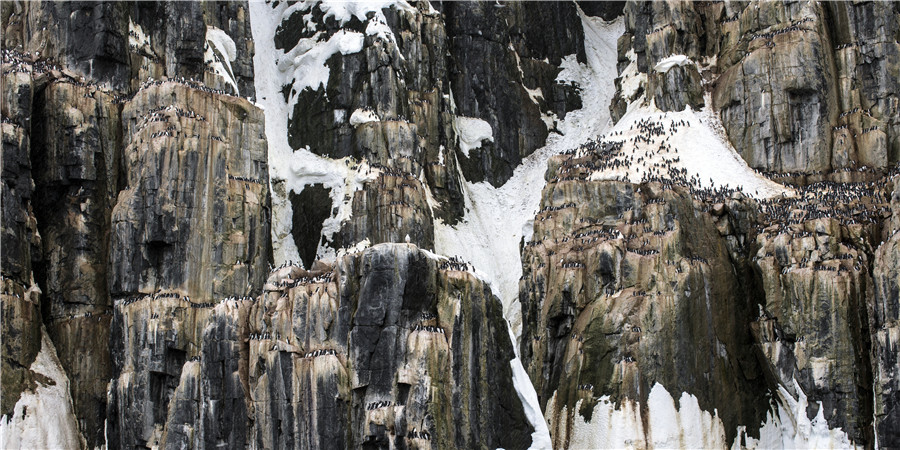 |
|
Black birds nest on the rocky ledges in the Arctic regions. [Photo by Wang Xinmei/provided to China Daily] |
The photographs point out that an environment full of vigor and harmony is needed by both man and animal.
Photography is an art of both time and space. Or rather more precisely, it is the art that footnotes and transforms time via space.
In this way, a photographer can establish another dimension parallel to the real world. And photos present a scenic path to the photographer's inner world.
Viewers can easily be attracted by Wang Xinmei's "parallel world": a journey of 50 years filled with ups and downs, laughter and tears.
In the exhibition, The Utmost in Heart, the photographer shows how mankind and animals enjoy a long-standing but contradictory relationship. It shows how animals are tamed and worshipped, fed and sacrificed.
It reveals how people treat them tenderly-sometimes like friends or partners-but also abuse or slaughter them at other times. The exhibition also shows how when man overrides nature, a distorted relationship forms between man and animal.
The photographs point out that an environment full of vigor and harmony is needed by both man and animal. For 300 years, from the 17th century, human civilization has witnessed huge progress.
However, more than 300 species have disappeared in 300 years. So, do we continue this tragedy? Might we remember our friends only through photos one day? For Wang Xinmei's view, the answer is, letting nature take its course.